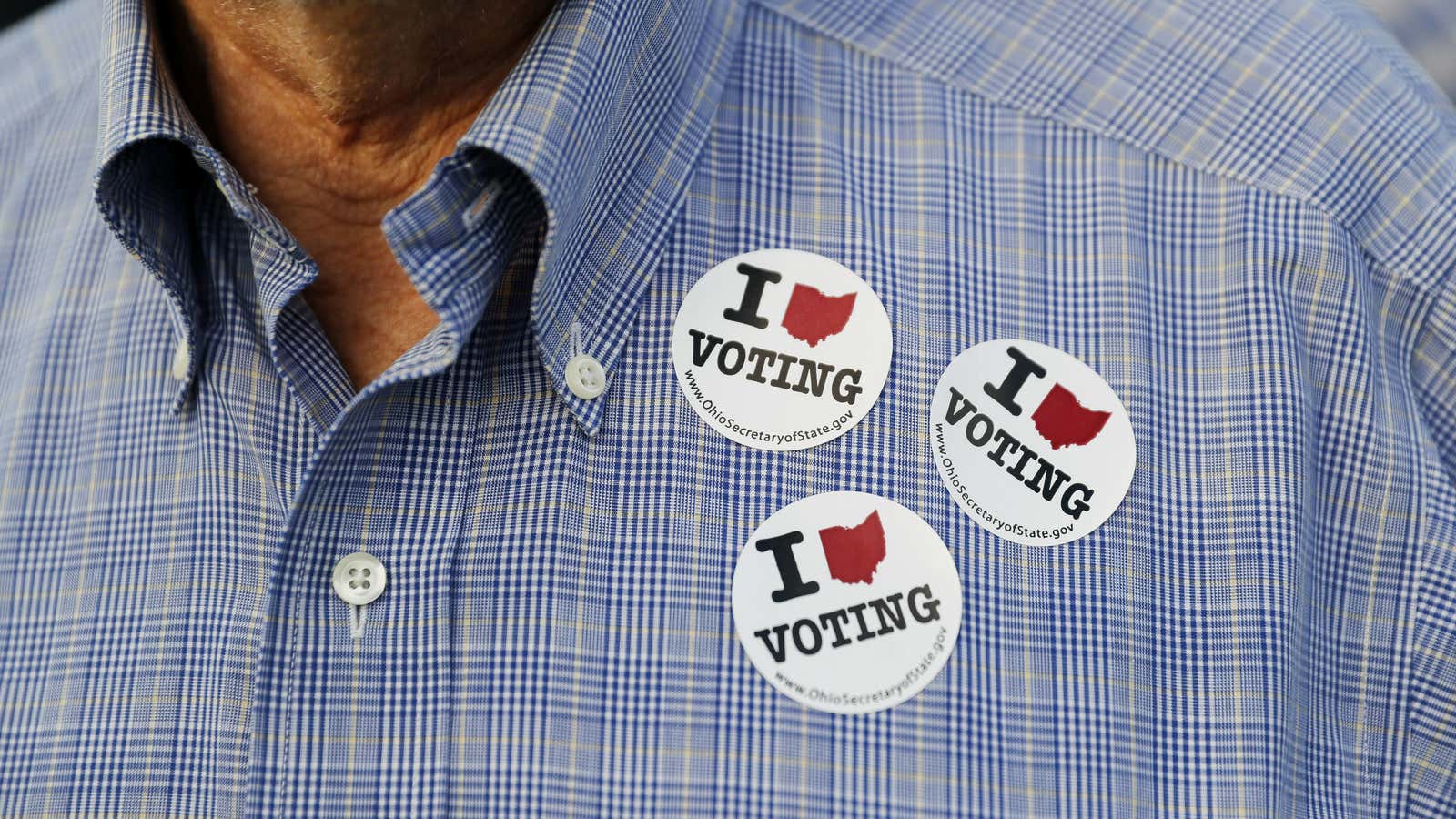The US economy is doing well. GDP growth is robust and the job market is strong. Yet Donald Trump’s approval rating is low, and his party is expected to lose a lot of seats in midterm elections on Tuesday. So does that mean the economy no longer matters for elections?
Not exactly. If the economy was bad, things would look even worse for Republicans.
Partisanship is increasing, so people are more likely to vote for one party or the other, no matter what. That’s especially true for mid-term elections, when a smaller number of committed partisans vote than during presidential election years.
Even so, research suggests that there is a relationship between economic conditions and how Americans vote in national elections. Work by political scientist Seth Masket shows that growth in real disposable income per capita is a good indicator to watch. Stronger growth in real income is linked to fewer seats lost by the president’s party in the House of Representatives, since midterm elections almost always punish the party in power.
Real disposable income captures “the ‘lived’ economy,” Masket says. It reflects “how much more money people have in their pockets than they did last year, which is something people have a strong sense of,” he adds. The average voter doesn’t experience the unemployment rate or GDP growth as directly in their daily lives.
Masket says that his forecast suggests that the Republicans will lose 38 seats in the House. That is perhaps at the lower end of what income growth alone would imply, because although the economy is important, other factors matter too.
In addition to growth in disposable income, the other key variable Masket’s model uses is presidential approval ratings. Though the upward-sloping relationship between stronger income growth and fewer seats lost still holds, an unpopular president drags down the entire line, so to speak.
For many voters, a strong economy is not enough to make up for their other misgivings. Plenty of people disapprove of the Republican party’s selections for the supreme court, efforts to get rid of Obamacare, and a deficit-expanding tax cut—not to mention Trump himself.
That’s why many election prediction models don’t strongly rely on economic indicators—the one used by FiveThirtyEight doesn’t use any, for example, and completely relies on approval ratings, polls, past election results, fundraising, and expert opinions. (The average of its House forecast is the same as Masket’s.) Sentiments about the economy are baked into these other metrics.
In a nutshell, voters “tend to punish the president’s party in midterms, although a bit less when the economy is strong and bit more when the president is unpopular,” Masket says. “This reminds us that despite all the advertisements and speeches and other campaign activities, voters tend to follow the fundamentals of the political environment.”
The US economy is unusually strong. Trump is in many ways a unique president. Will that be enough to buck historical election patterns? Probably not.
